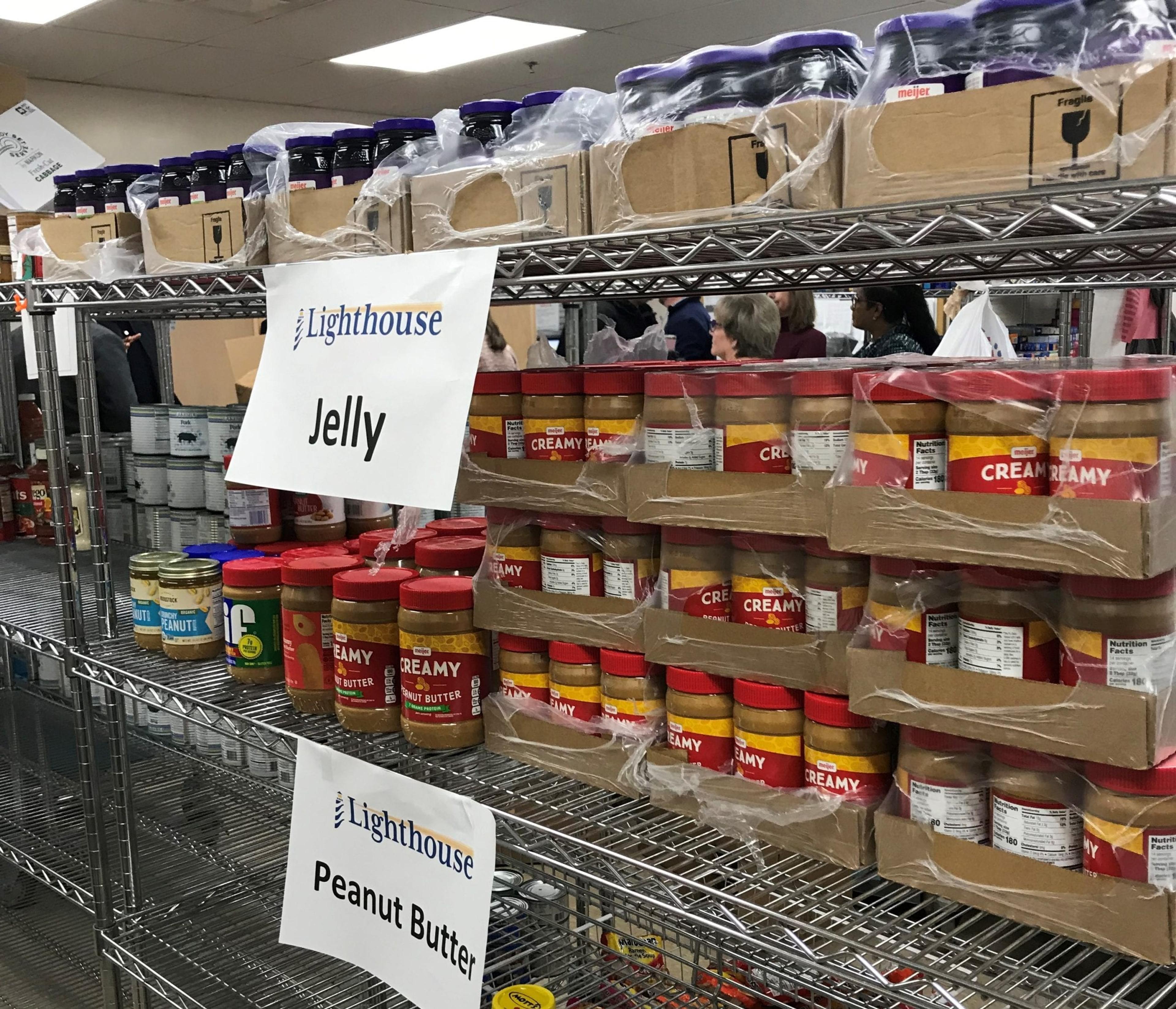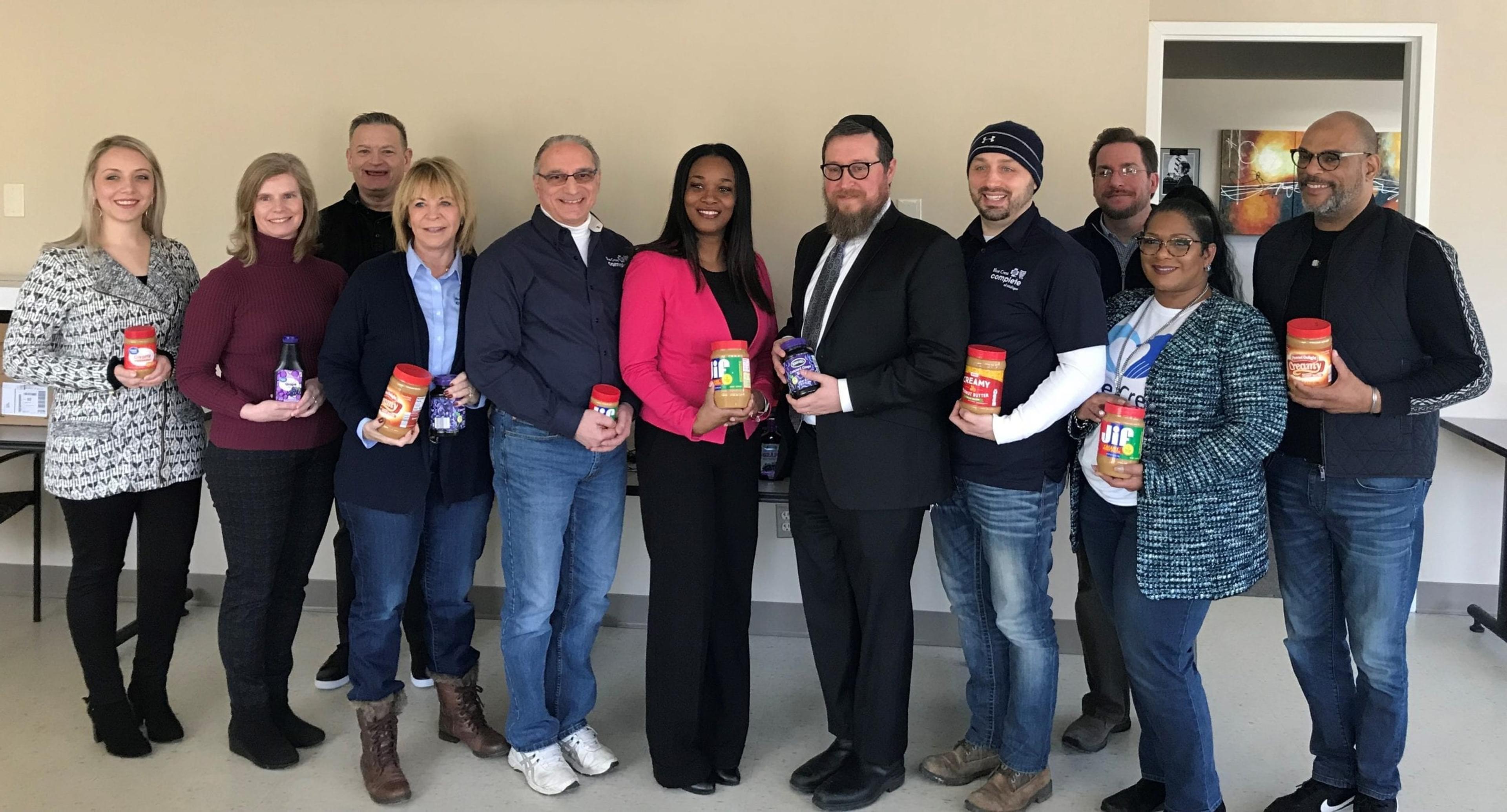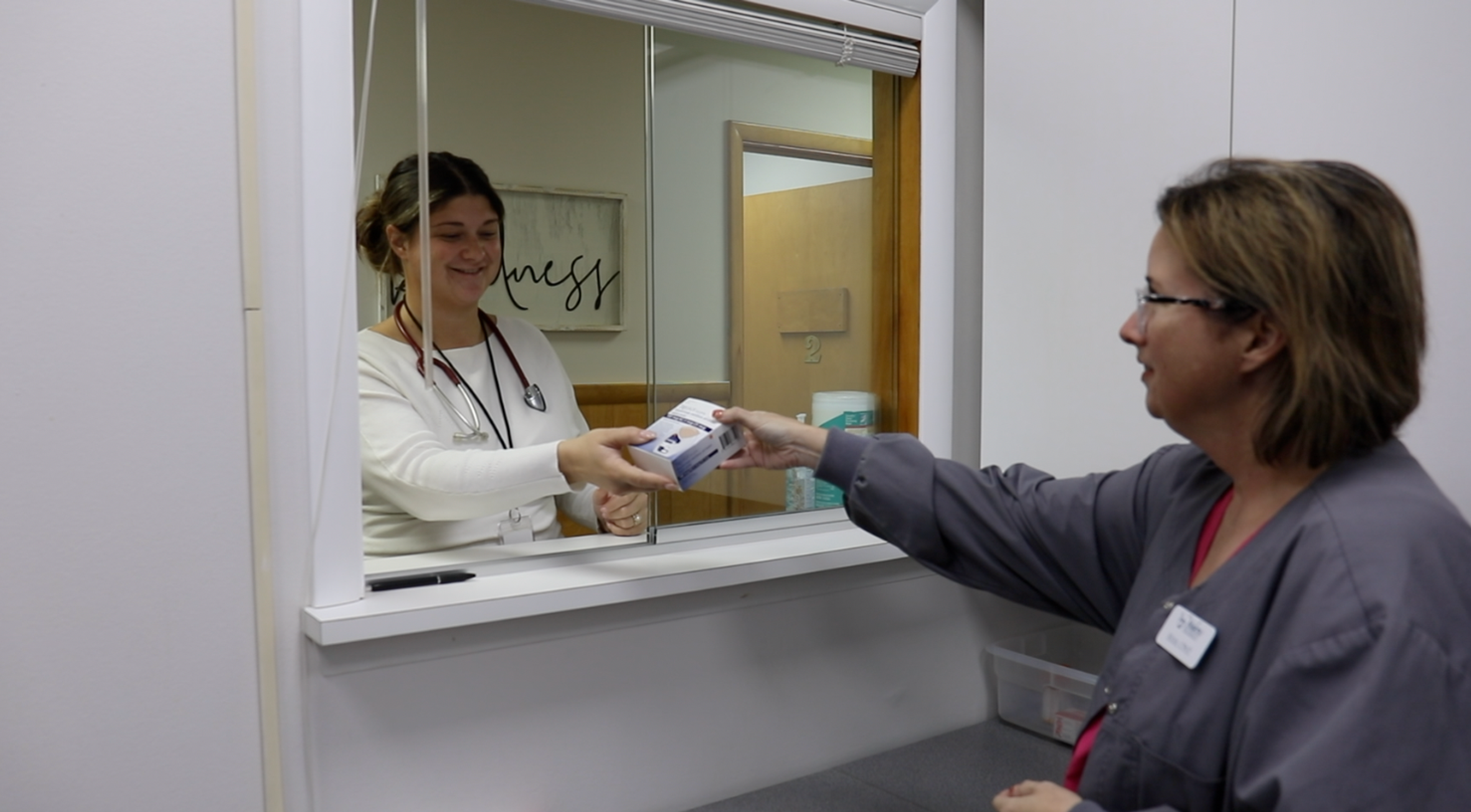
Pontiac, Michigan sits in the heart of Oakland County — one of the wealthiest counties in the state. Yet, the majority of its 60,000 residents are working class with a household income of $28,000. It’s a glaring disparity that’s created an ongoing need for vital resources, such as food and housing. In 1972, Pontiac’s unique demand led to the creation of Lighthouse of Michigan, originally called Lighthouse of Oakland County. The nonprofit, which recently merged with South Oakland Shelter, helps people dealing with poverty-related issues. Pontiac acts as a home base with a food pantry and two transitional housing shelters.

Over the years, Lighthouse has expanded with the addition of Clarkston and Lathrup Village locations. “Our Clarkston office is an office that receives the working poor,” explained James McQueen, community outreach and pantry manager. “They’re just not making enough to make ends meet. So, they access the pantry to stretch their resources.” The pantry is usually the first point of entry for potential Lighthouse clients. Between the Pontiac and Clarkston sites, they support an average of 900 families. Meanwhile, the Lathrup Village office is a hub for those seeking emergency and permanent housing. “When our clients come into Direct Services, they are seen by a staff person, intern, or sometimes even a volunteer,” said McQueen. “They do an assessment with them … their assessment will evaluate where they are, what they’re getting, and some of the resources they may need.” If Lighthouse is unable to provide the necessary services, the client is referred to a partner agency to help fill in the gaps.

Throughout the year, Lighthouse hosts various fundraisers and food drives to support their efforts. On Friday, Feb. 14, as part of their month-long Spread the Love campaign, Blue Cross Complete and Blue Cross Blue Shield of Michigan employees delivered 200 cases of peanut butter and jelly and several boxes of peanut butter and jelly given by BCC employees through a donation drive. "We understand that basic needs like food, housing, transportation and utilities will come first in a person or family’s pathway to good health," said Laura Mutz, communications and marketing director, Blue Cross Complete. "Without basic necessities it’s unlikely that a person can focus on their health or the health of their loved ones. Blue Cross Complete works to remove these barriers to receiving health care and we do that in part by teaming up with organizations like Lighthouse who understand the criticality and the need." “Peanut butter and jelly, believe it or not, is something that always flies from our shelves,” revealed McQueen. “It’s a bit expensive so we reach out to partner donors for donations … certain churches have gotten up to 3,500 jars of peanut butter and jelly for us. Normally, we’re out of that in a couple months.” Approximately 1.4 million Michigan residents have limited access to nutritionally adequate or safe foods. Lighthouse depends on the assistance of their large donor base to keep the pantry stocked and open. “I recently launched a pantry in Southfield right down the street from our Lathrup office,” added McQueen. “We know that there is a need and we’re trying to address it as best we can.” Donations to food pantries often drop off after the holidays. One jar of peanut butter can make enough sandwiches for three weeks. Peanut butter and jelly sandwiches provide nutrients like protein, fiber and vitamin C. A homemade PB&J can also provide a vital sense of comfort and stability. If you’d like to donate to Lighthouse’s Spread the Love campaign click here. Also, learn more about upcoming fundraisers and available services by visiting: https://lighthousemi.org. Read more:
Main image photo credit: picalotta





